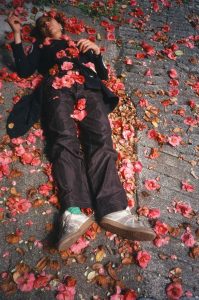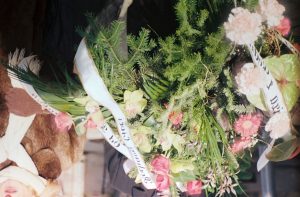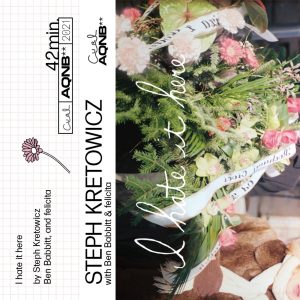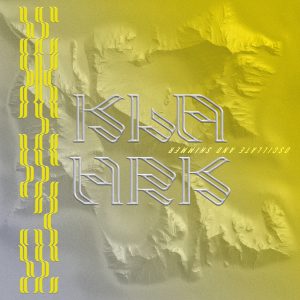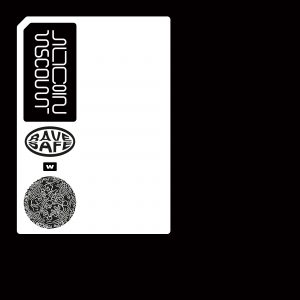“Once I hand in my PhD, I’m looking forward to finishing and releasing the album,” says the indefatigable Jack Armitage of Offer, an audio-visual project by the producer otherwise known as PC Music artist Lil Data with Adult Jazz vocalist Harry Burgess. “It’s strongly grounded in ‘Day Away‘ and ‘Offer’ but there’s definitely more surprises and moments in there.” Referring to the only two songs released by the London and Leeds-based duo, the aforementioned tracks are the product of what has thus far been a decade-long collaboration since the duo met at university in Yorkshire.
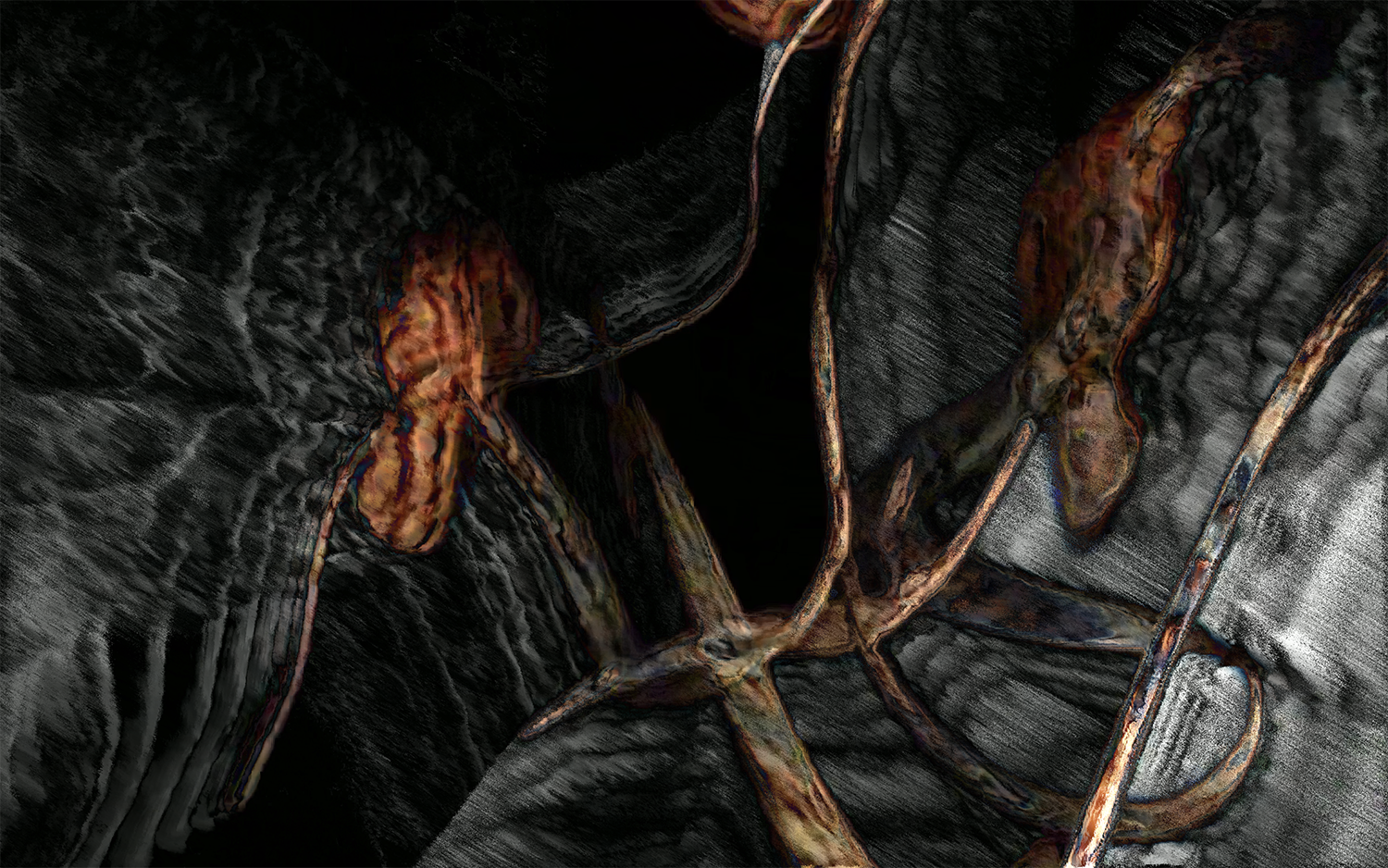
‘Day Away‘ was only just released in November last year. It’s an epic 12-minute single that sounds like several songs woven into a strange, shifting current of synths, saws, keys and Burgess’ typically beatific vocals. That was followed by an eponymous follow-up track called ‘Offer’, dropped in April with a more conventional four-plus minute duration and a remix by Klahrk. The video, premiering on AQNB today, features lyrics sung by Burgess floating across a generative landscape of distorted, contorted and manipulated visuals created using Olivia Jack‘s Hydra software. The music it accompanies is more pop-oriented, skipping and bounding through an intricate composition of sonic elements that support the layered vocal gymnastics of Burgess’ admirable range.
Between Armitage releasing Lil Data’s four-disc anthology of algorithmic pop in Folder Dot Zip in February and Burgess working on a new Adult Jazz record, while publishing a collection of essays and poems called Toffee Hammer, Offer make work that is equally detailed and complex. In service to that irrepressible curiosity and experimentation, the two spoke to another PC Music artist, felicita, about the extremes, obstacles and playful innocence of their deeply cerebral maximalist pop.
**How do you spell sincerity?
Jack Armitage: Sincerity is a funny one, because it’s extremely easy to signify without achieving it, and in turn it is often through toying with it that you articulate it best. I’m a fan of clashes and extremes as a means towards sincerity and I’m guessing that’s what you’re referring to with this question. I love moments where my gut response is, ‘that couldn’t possibly be sincere’, but then stumbling on a context where something clicks. That ‘click’ moment can be quite personal at first but over time it becomes something you can share. I subscribe to the idea that you have to make someone feel a little disgusted, silly or lost, before they will be ready for something deeply sincere and hopefully transformative.
Harry Burgess: It’s hard. You can spell it in loads of ways, I think. Ultimately, it’s a trust in someone’s intention, that they want you to join in. Something that is really hard to cultivate in a world with so much music pitched out there—it’s hard to feel commitment. I’ve wanted to be a ‘fan’ of new music more, have that kind of trust. Like not an appreciator, or someone who gets the vibe but a fan; that kind of teenage sincerity about music that is ‘yours’! I saw Robyn recently and there was loads of fan-hood there and it was so, so lovely. People really let themselves go and it was so fun and infectious.
I think sincerity is really beautiful. No one wants to hear music made solely from a cynical impulse. You can hear it and it feels opportunistic. You can feel it in a crowd watching. As someone making it, I don’t think that precludes you from playing with seriousness and legibility though. As Jack says—arranging extremes, or even obstacles into something personally sincere feels very special. I think, as I have got older, my appetite for sincerity has grown I think.
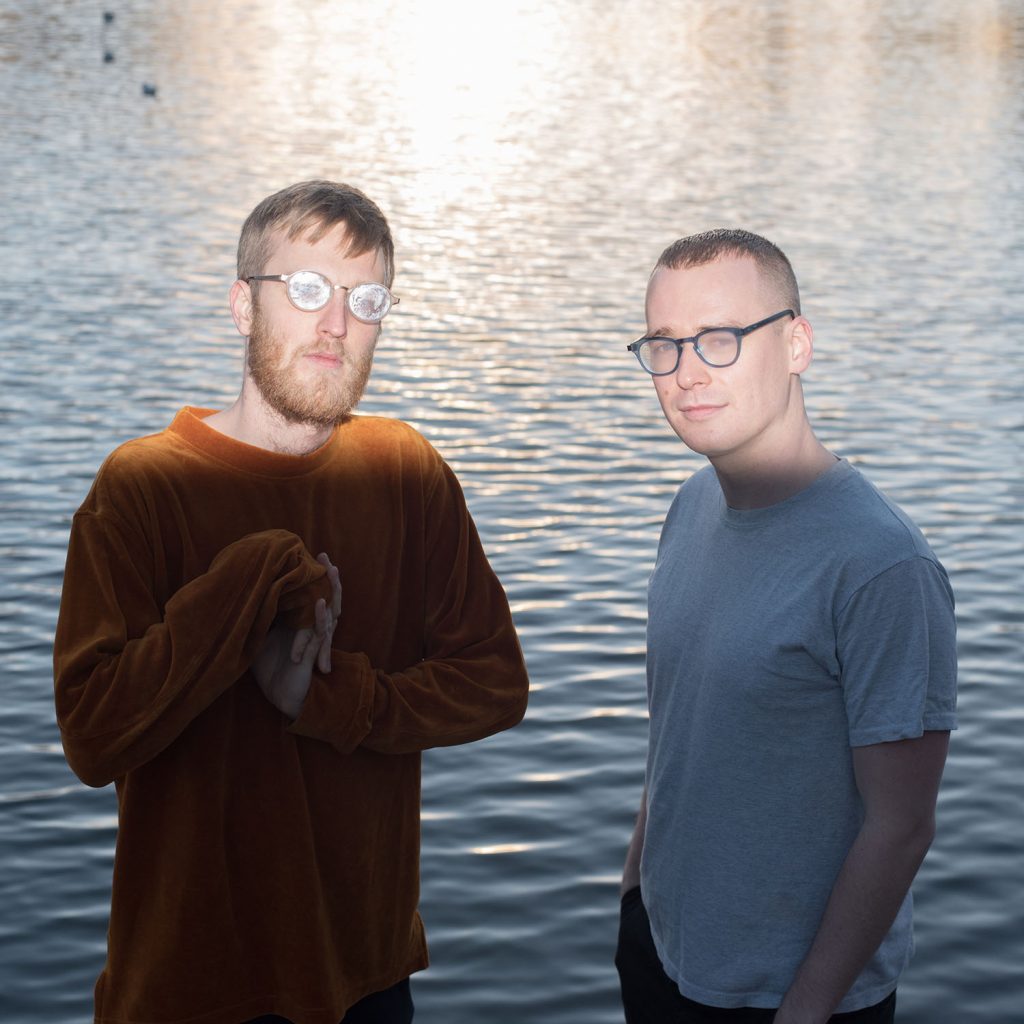
** Harry, do you consciously delineate between the music you make as Adult Jazz, the music you make as Offer, and the music practices you teach in your daily life?
HB: Melodies or hooks definitely get handed around between all three, and Offer and Adult Jazz have similar ultimate aims for me, but I think I do have a kind of sense of tonal difference in how I approach it. I think both Offer and Adult Jazz hope to end up in a place that is playful with seriousness but hopefully with reverence and pause for when the seriousness is, you know, actually serious… ha.
Adult Jazz tends to have this initial serious, committed emotional sincerity, reflected in the instrumentation, lyrics, everything—but I think, through its insistence, that melodrama arrives and starts to get into that clown-y theatre space. Offer starts out with a more brash and flippant landscape, but the lyrical content is definitely more direct and unadorned than AJ. I’m singing solely personally and not seeking to extrapolate afterwards.
I think they also are both rooted in improvisation—lots of the Offer record is based around a long recording of my first improvisations with a ROLI Seaboard, with Jack resampling me on the keys as we went. I definitely feed off collaboration, so working with Jack is very different to the guys in AJ, purely because of different sensibilities, processes and skill sets. That kind of does some forced delineation from the very off.
Jack is conscious of the sonic environment in a detailed and sensitive way I’m naturally not. Compositionally, I often just think about what’s there, what’s been and what’s coming, and then bang my head against a wall ignoring the role that sound has in shaping those relationships. Jack was really good at stopping and attending to that dimension, opening up possibilities as he went.
As for teaching—my music practice there is much more about helping children enjoy music and feel explorative. It’s much more a position of facilitating. It’s also given me an appreciation of the physical act of communal singing and how much value that has for people, so if it’s George Ezra, or whatever that’s going to get them all singing really unselfconsciously, then I’m down. Though I do try and listen and talk about lots of different types of music. I have been trying to do ‘Panda Chant’ (Meredith Monk) with my choir (cross-rhythms proving tricky) and this thing called ‘Eternal Happy Birthday’, where you sing the tune at slightly different, very slow speeds and get some nice harmonies. Sometimes that stuff works, sometimes it doesn’t. They are nailing a Tracy Chapman medley at the moment.
**Jack, how much of the Offer material features the live coding techniques you’ve developed as Lil Data?
JA: Technically speaking, there have been zero live coding techniques used in the Offer project that I can recall. When we started on the sessions that would become Offer, my motive was to work with Harry’s voice as an instrument. We also had this history of composing together, so we were comfortable working in the same room together. That opens up possibilities that solo work doesn’t.
Also, Offer has been a way of embracing guilty pleasures for both of us. Having done so much live coded music in the last few years, ‘traditional DAW [Digital audio workstation] production’ was exactly that for me. It was a holiday from Lil Data and live coding and it felt liberating to be singly in the producer seat. I managed to deeply relax into linear composition in a way that I rarely achieve with Lil Data for some reason. I think it partly stems from trusting Harry completely with song, lyric and melody—things I struggle with.
There’s a lot of tedium involved in using live coding in production and I didn’t want to break the flow that we had going in Offer sessions. Code has this ‘aesthetics of frustration’ attached to it and as Lil Data my music inevitably ends up commenting on this ‘process friction’. Being aware of this I felt live coding was not suitable for this project. However, I’m certain it creeps in; it’s influenced me way too deeply not to.
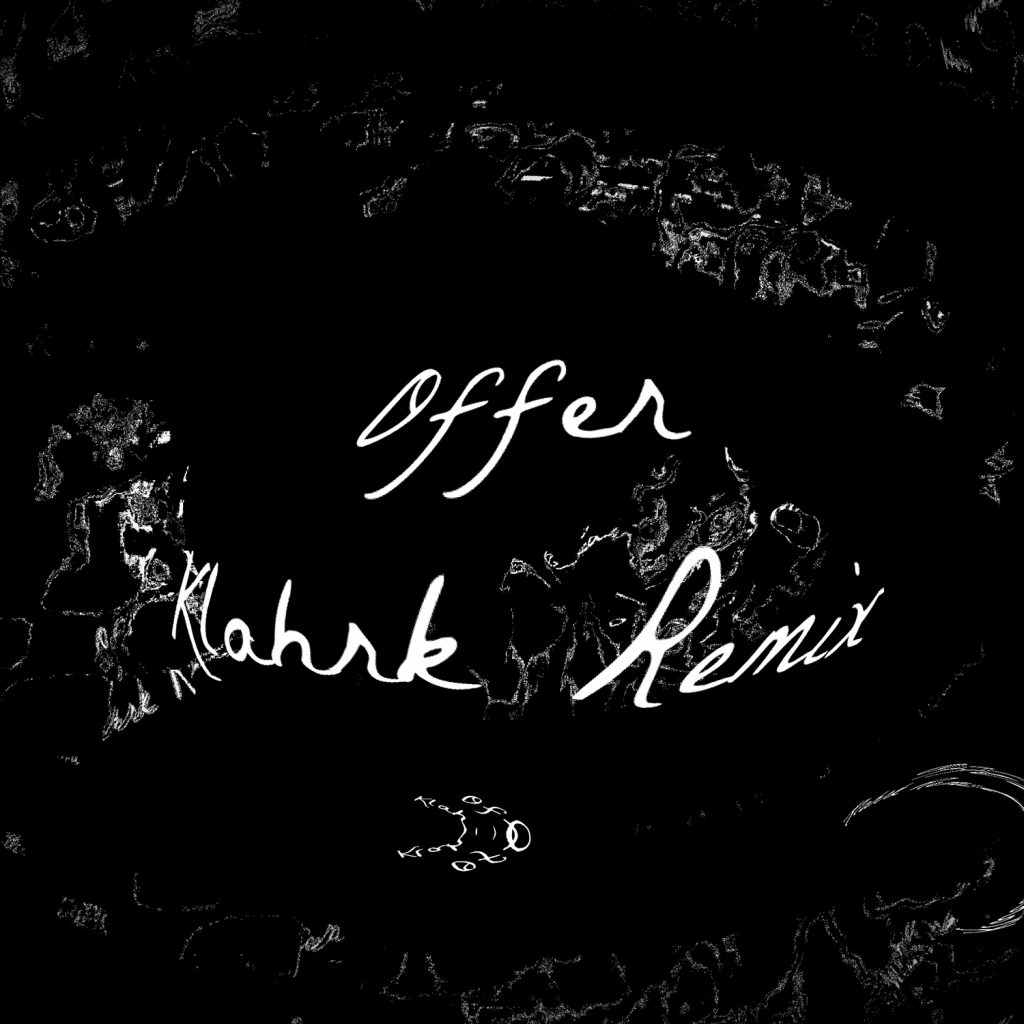
**Can you describe how you approached the video?
HB: Jack certainly headed it up and had more of a solid vision of what it would be, and spent ages shaping it accordingly—I had no experience with Hydra and tend to find those things a little overwhelming—so very grateful to Jack!
I arrived to the shoot without too much preconception—other than to perform but not be too much of a human presence. When we got there, it felt fun to try and perform the song so emotionally hard that it might burst through the obscuration—like those moments when you see those hands right at you! We were recording at high or low speeds a lot, so performing the song at those tempos allows you to unlock performance things you would not have otherwise—like how much you chew a word, or how suddenly you spit it out! I also like the idea that a lot of that performative energy/actorly commitment is essentially lost and is sealed into the video in more anecdotal way for me!
JA: After our first single (‘Day Away’) I had a strong urge to release ‘Offer’ with a video, to explore the visual language of the project and give people another angle on what we’re doing. Last year, I became very interested in a live coding environment for visuals called Hydra created by artist Olivia Jack, and spent some time researching how it could work for a video. I had an intuition that Hydra would allow me to digitally sculpt footage of Harry in a rapid way and that it would tie in nicely with the sometimes surreal presentation of his voice in ‘Offer’.
I ended up customising Hydra to synchronise video, sound and lyrics, play back higher resolution videos and record them in decent quality. It’s an amazing tool for someone like me who has never written any GLSL [OpenGL Shading Language]. I got so lost in exploring every function that I ended up rewriting some of the documentation. Eventually, I had a setup where I could instantly dial in any bit of footage we shot and play with the lyrics at that point in time. That’s when Hydra became more of an instrument where I could record explorations and then compose/edit them into the final video. It took much longer than I anticipated in the end but it was worth it. I then did the Klahrk video right at the end in about two hours, which I think comes across and I enjoy that contrast with the more studious video for the original.**
**There’s an extraordinary level of detail and complexity concealed within this song. How long did it take to make, and what else do you have to offer in 2019?
JA: Ironically, all of the Offer songs started life during a one-off session with the idea of releasing a record within a couple of weeks or months, but every time we met up, we kept on expanding the composition and re-recording vocals. I see in Harry this urge to be expansive, and I find it hard to resist joining in and filling out each song as its own world, which takes forever!
I think this song might be one of the more complex pieces of music I’ve been involved in. It was originally a three-minute-ish piece but we have this habit of adding an equally detailed ‘second song’ to the first. This happens in ‘Day Away’ and in other Offer songs but also goes back to some of our demos from 10 years ago. The complexity made the song’s identity hard to pin down, until later when I spent a lot of time on sound design and then it came together quickly. It’s initially explosive, then thorny and knotty in the middle but once you get to the end there’s reiteration and ultimately resolution.
Once I hand in my PhD I’m looking forward to finishing and releasing the Offer album. It’s strongly grounded in ‘Day Away’ and ‘Offer’ but there’s definitely more surprises and moments in there. We’d love to design a live show too, perhaps in 2020.
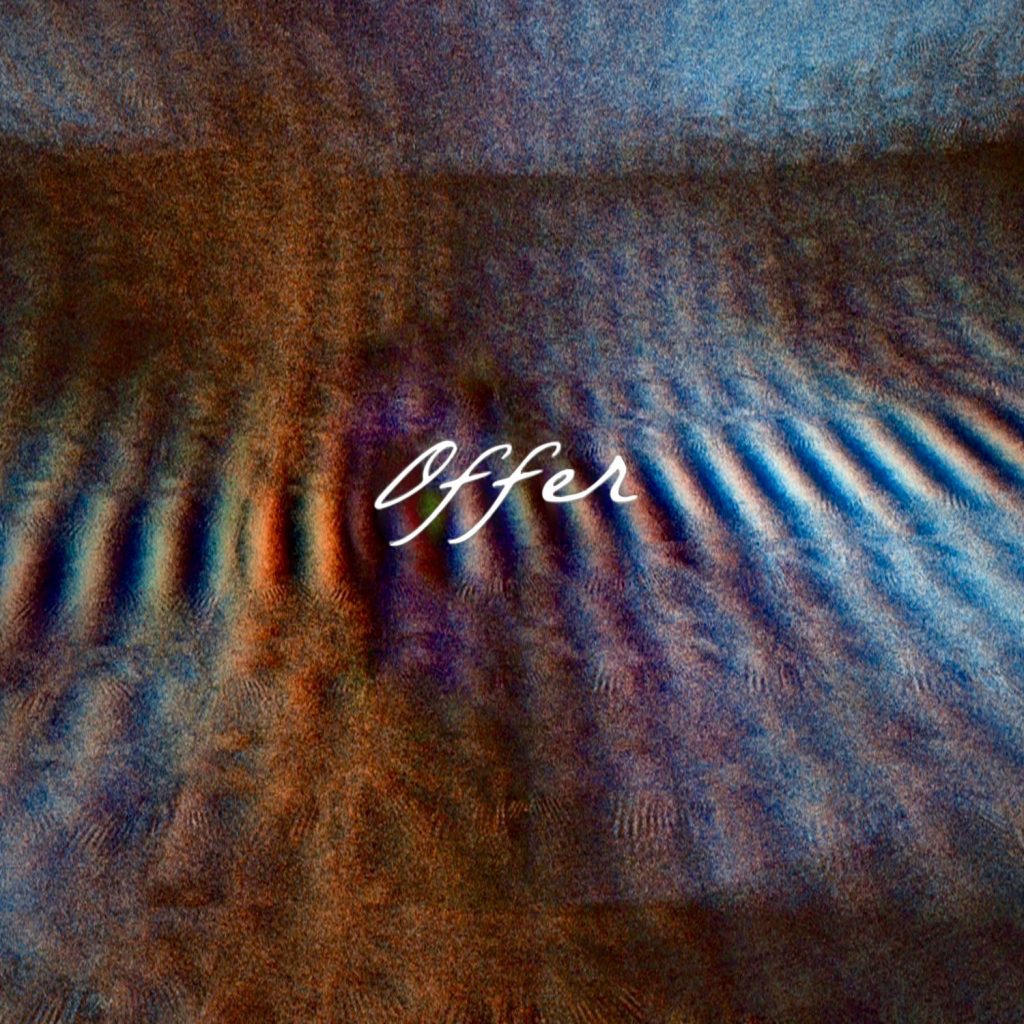
HB: Offer, the song and the full-length it comes from, has taken the best part of four years, with a couple of periods of time off, while focusing on our other projects. For the track, we just started with a broad brush, decided on a few ‘non-negotiables’ with the track early on that typified its character—what we loved about the initial impulses we had, trying to honour the first rushes of ideas: ‘Oh we’ve got a really nice new idea. How’s that gonna work with these pretty specific vocal samples we promised ourselves would stay?’ Then you kind of need some form reticulation to stick to your guns, to problem-solve but hopefully it doesn’t overshadow the broad-brush impulse from the start. For that reason I like that you said concealed!
The album isn’t quite done yet—but there’s some stuff I’m really proud of on there. There is a weird musical theatre-y ballad made around a drone note from a wine glass, which I love. There’s another big pop track. Then there’s my favourite—a long, slow one called ‘Resilience’, which we actually snuck out a rough little bit of in the Adult Jazz Fader mix a while back. It has this quite timid, devotional feeling and, like ‘Day Away’, is based around this long improvisation, so it unfolds in what is hopefully a really natural way. Devotional singing is natural for me, and I think religious music has had a big impact on what I make—alternately a recoil and an embrace, dependent on something I don’t quite understand and cannot predict—which I think is the reason for my obsessive revisiting of faith as a subject matter! It felt like someone named that song for us, which often happens to the ones I really love.**
Offer’s self-titled single music video was self-released on May 28, 2019.
